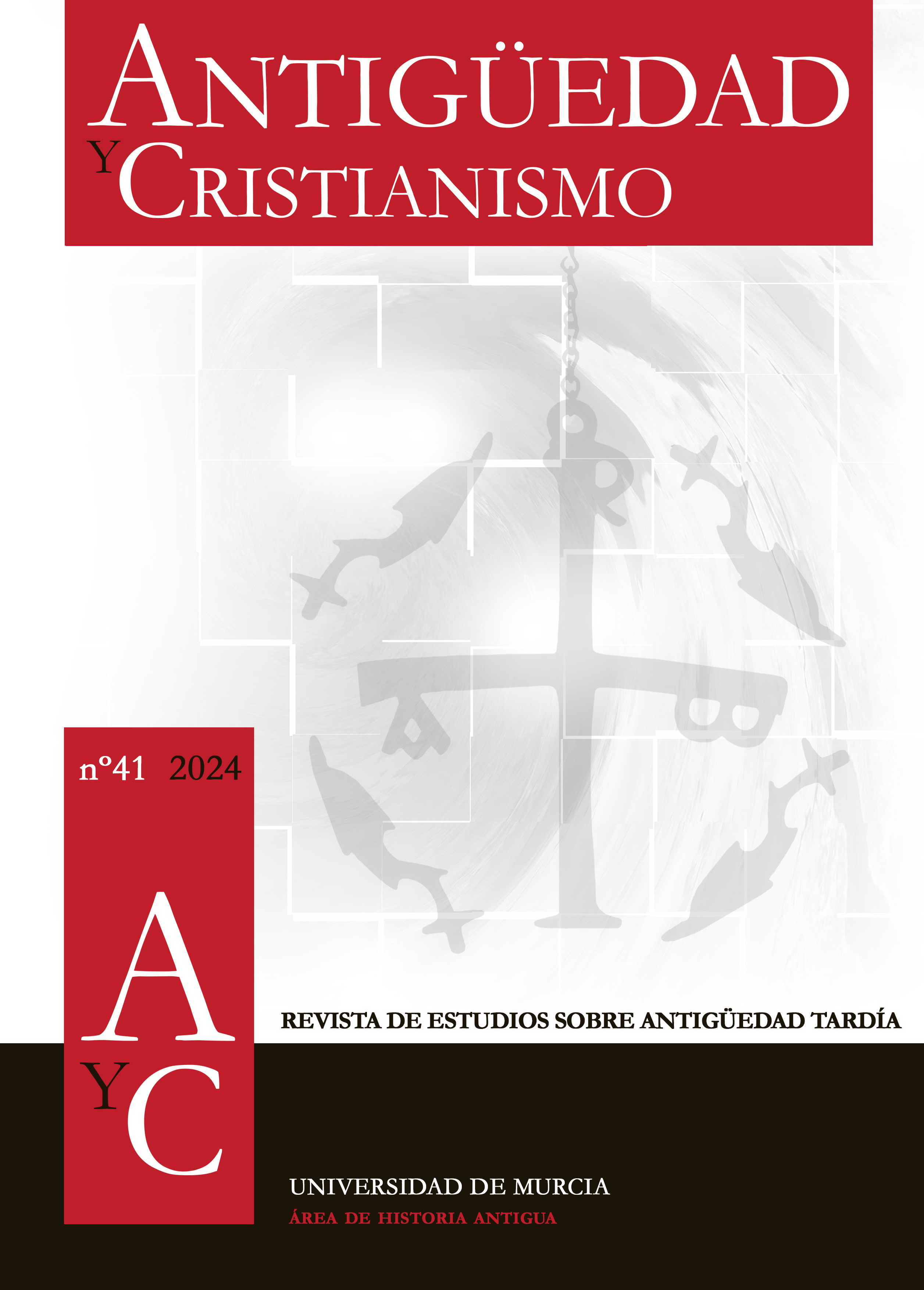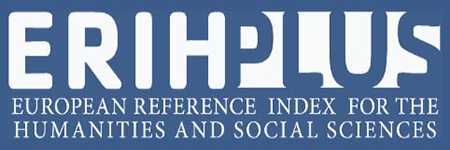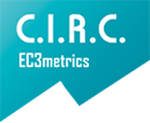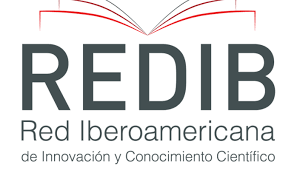Reception of Heracles and Greek Mythology in the Hagiography of Saint Anthony
Abstract
This paper aims to work on a book authored by Brás Luís de Abreu, entitled Sol Nascido No Occidente, e Posto Ao Nascer Do Sol, S. Antonio Portugues, from 1725, a biography of Fernando Bulhões (or Martins), who was born in Lisbon (Portugal) at the end of the 12th century and died in Padua (Italy) in the 13th century, better known as Saint Anthony (to whose name both Lisbon and Padua have added their respective toponymic). In this text, Saint Anthony is compared to various figures from classical antiquity (gods, heroes, mythological and historical figures) and Christianity.
The intention is to examine the characteristics of Heracles/Hercules, analyzing which were chosen and which were omitted, how they are described in relation to the roles of each, and how they contributed to the praise of the saint (the final goal of the work).
Downloads
-
Abstract325
-
PDF188
-
EPUB71
References
Classic References
Coleridge, E.P. 1938. Euripides. The Complete Greek Drama. Vol. 1. Edited by Whitney J. Oates and Eugene O’Neill, Jr. in two volumes. New York: Random House. https://www.perseus.tufts.edu/hopper/.
Alexander. C. 2015. Homer. Iliad. New York: Ecco Press- Harper Collins Publishers.
Kovacs, D. 1995. Euripides. Heraclidae/ Children of Heracles. Cambridge: Harvard University Press.
Miller, F J. 1917. Seneca. Tragedies. Hercules Furens; Troades; Medea; Hippolytus; Oedipus, vol. 1, London-New York: William Heinemann-G.P. Putnam’s Sons.
Perrin, B. 1914. Plutarch. Plutarch’s Lives. Cambridge, MA: Harvard University Press-London. William Heinemann Ltd.
Race, W. H. 1997. Pindar. Olympian Odes, Pythian Odes. Cambridge-London: Harvard University Press.
Wilson, E. 2017. Homer. Odyssey. New York- London: W.W. Norton & Company, Inc.
Torrence, R. 1966. Sophocles. Trachiniae /The Women of Trachis and Philoctetes. Boston: Houghton Mifflin.
References
Anagnostou-Laoutides, E. 2019. The Tides of Virtue and Vice: Augustine’s Response. In Allan, A., Anagnostou-Laoutides, E. and Stafford, E. J. (Eds.), Herakles Inside and Outside the Church, 45-69. Leiden-Boston: Brill.
Allan, A. 2019. Herakles, “Christ-Curious” Greeks and Revelation 5. In Allan, A., Anagnostou-Laoutides, E. and Stafford, E. J. (Eds.), Herakles Inside and Outside the Church, 21-44. Leiden/Boston: Brill.
Borges, A. M. and Pereira, P. T. 2019. Santo António e o Exército: tradição, história e arquitectura militares/Saint Anthony and the Army: tradition, history and military architecture (Edição bilingue/ bilingual Edition). Lisboa: By the Book.
Bremmer, J. N. 1994. Greek Religion. Oxford: Oxford University Press.
Bundrick, S. D. 2020. Herakles on the Move: A Greek Hydria’s Journey from Athens to Vulci. In Bell, S. (Ed.) Memoirs of the American Academy in Rome, vol. 63 and 64, 85-135. Ann Arbor: The American Academy in Rome -University of Michigan Press.
Correia, M. N. X. H. 1997. Hercules divino Sancto Antonio Portugues, Hercules Divino Antonio Portugues. Edição. Hercules divino Sancto Antonio Portugues. Metáforas e Alegorias. Thesis, Faculdade de Ciências Sociais e Humanas: Universidade Nova de Lisboa.
Eppinger, A. 2019. Exemplum virtutis for Christian Emperors: the Role of Herakles/Hercules in Late Antique Imperial Representation. In Allan, A., Anagnostou-Laoutides, E. and Stafford, E. J. (Eds.), Herakles Inside and Outside the Church, 73-93. Leiden/Boston: Brill.
Eppinger, A. 2015. Hercules in der Spätantike. Die Rolle des Heros im Spannungsfeld von Heidentum und Christentum. Wiesbaden: Harrassowitz Verlag.
Eratosthenes and Hyginus. 2015. Constellation Myths. With Aratus’ Phaenomena. Oxford: Oxford University Press.
Hutchison, K. 2009. The Antiquity of the “injunction” Non plus ultra. Canadian Bulletin of Medical History = Bulletin Canadien d’Histoire de la Medecine 26 (1), 155-178.
Gnuse, R. K. 2021. Hellenism and the Primary History. The Imprint of Greek Sources in Genesis – 2 Kings. Oxford/New York: Routledge.
Janko, R. 2012. Relative chronology and the literary history of the early Greek epos – πρῶτόν τε καὶ ὕστατον αἰὲν ἀείδειν. In Andersen, Ø. and Haug. D. T. T. (Eds.), Relative Chronology in Early Greek Epic Poetry, 20-43. Cambridge: Cambridge University Press.
Junker, K. 2012. Interpreting the Images of Greek Myths. Cambridge-New York: Cambridge University Press.
Lawrence, C. H. 2018. Adam Marsh at Oxford. In Robson, M. and Zutshi, P. (Eds.), The Franciscan Order in the Medieval English Province and Beyond, 159-179. Amsterdam: Amsterdam University Press.
Mershman, F. 1909. Ember Days. The Catholic Encyclopedia. Vol. 5. New York: Robert Appleton Company. http://www.newadvent.org/cathen/05399b.htm. (31st May 2024)
Nagy, L. 2016. Myth and Salvation in the Fourth Century: Representations of Hercules in Christian contexts. In Salzman, M. R., Sághy, M. and Testa, R. L. (Eds.), Pagans and Christians in Late Antique Rome. Conflict, Competition, and Coexistence in the Fourth Century, 379-400. Cambridge: Cambridge University Press.
Nishi, T. 2014. The Representations of Hercules and Hydra in Shakespeare’s Coriolanus. PhD Dissertation, Birkbeck: University of London.
Pacheco, M. D. 2015. Greek Mythology at the Service of the Portuguese Inquisition: The Case of Hercules and the Hydra of Lerna. Athens Journal of Mediterranean Studies 1 (1), 25-44. DOI: 10.30958/ajms.
Phillips, J. 2019. The Life and Legend of the Sultan Saladin. New Haven-London: Yale University Press.
Rosenthal, E. 1971. Plus Ultra, Non Plus Ultra, and the Columnar Device of Emperor Charles V. Journal of the Warburg and Courtauld Institutes 34, 204-228.
Saraiva, A. J. and Lopes, Ó. 1996. História da Literatura Portuguesa. Porto: Porto Editora.
Seznec, J. 1953. The Survival of the Pagan Gods: The Mythological Tradition and Its Place in Renaissance Humanism And Art. New York: Pantheon Books.
Silva, I. F. 1858. Diccionario Bibliographico Portuguez. Tomo Primeiro. Lisboa: Imprensa Nacional.
Stafford, E. J. 2021. The Reception of Heracles. In Ogden, D. (Ed.), The Oxford Handbook of Heracles, 540-555. Oxford: Oxford University Press.
Stafford, E. J. 2019. Forward. In Allan, A., Anagnostou-Laoutides, E. and Stafford, E. J. (Eds.), Herakles Inside and Outside the Church, vii-xiii. Leiden-Boston: Brill.
Stafford, E. J. 2017. Hercules’ Choice: Vice, Virtue and the Hero of the Twentieth-Century Screen. In Almagor, E. and Maurice, L. (Eds.), The Reception of Ancient Virtues and Vices in Modern Popular Culture. Beauty, Bravery, Blood and Glory, 140–166. Leiden-Boston: Brill.
Stafford, E. J. 2012. Herakles. London: Routledge.
Stafford, E. J. 2010. Herakles Between Gods and Heroes. In Bremmer, J. N. and Erskine, A. (Eds.), The Gods of Ancient Greece. Identities and Transformations, 228-244. Edinburgh: Edinburgh University Press.
Copyright (c) 2024 Adriana Nogueira

This work is licensed under a Creative Commons Attribution-ShareAlike 4.0 International License.
1. The authors non-exclusively assign the exploitation rights (reproduction, distribution, communication and transformation) to the magazine.
2. The works published in this magazine are subject to the Attribution-ShareAlike 4.0 International license (CC By SA 4.0). Therefore, they can be copied, used, disseminated, transmitted and publicly displayed, provided that:
i) the authorship and the original source of its publication (journal, editorial and URL of the work) are cited, thus allowing its recognition.
ii) it is allowed to remix, transform or create from the material while maintaining the same license as the original.
Note: Articles prior to 2022 incorrectly display the CC by SA license in the abstract page. They are under a CC by NC ND license as embedded in the article pdfs. Articles published in 2022 and after are under the CC by SA license.

3. Self-archiving conditions. Authors are allowed and encouraged to electronically disseminate the pre-print (version before being evaluated) and/or post-print (version evaluated and accepted for publication) versions of their works before publication, as it favors their publication. Earlier circulation and diffusion and with it a possible increase in its citation and reach among the academic community. Color RoMEO: verde.
























